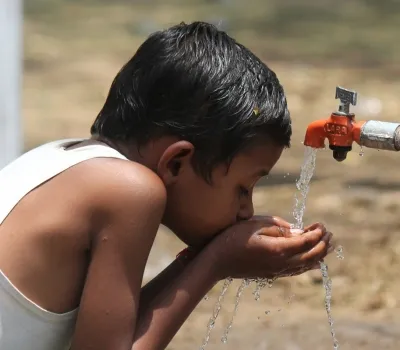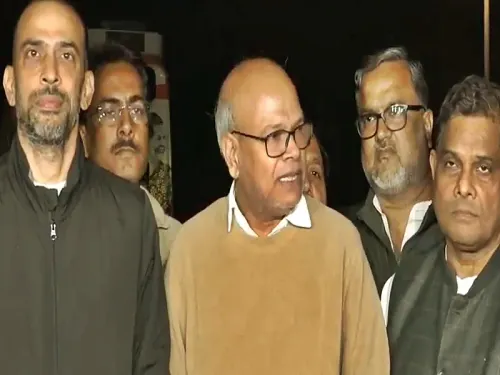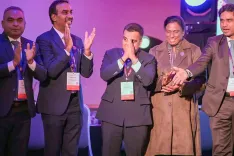What Conditions Has the Centre Set for Fund Release to Bengal Under the 'Jal Jeevan Mission' Project?

Synopsis
Key Takeaways
- Union government sets conditions for fund release.
- Identification numbers are mandatory for schemes.
- Financial reconciliation ensures accountability.
- 'Jal Jeevan Mission' aims for safe drinking water in rural areas.
- Community approach is key to the project's success.
Kolkata, Nov 27 (NationPress) The Union government has outlined specific conditions for disbursing Central funds to the West Bengal government as part of the 'Jal Jeevan Mission' initiative.
The initial requirement, as indicated by an official from the State Secretariat in Nabanna, is that funds will be allocated strictly based on scheme-specific proposals associated with the Central project.
Each proposal must have an individual identification number; without this, access to Central funds for the project will be denied.
Moreover, the state official noted that the Union government has mandated financial reconciliation for each scheme under the 'Jal Jeevan Mission' project.
“This implies that the Union government will conduct a thorough review to ensure there is no discrepancy between the total Central funds allocated for a specific scheme and the actual expenditure incurred by the state for that scheme. The release of Central funds will be contingent upon the Union government’s satisfaction regarding these figures,” the official elaborated.
The Ministry of Jal Shakti has recently communicated in writing to the West Bengal government regarding the conditions for fund allocation under the 'Jal Jeevan Mission' project.
“The critical aspect of all conditions for the release of Central funds is the establishment of distinct identification numbers for various schemes under the 'Jal Jeevan Mission'. Consequently, the public health engineering department has been urged by the State Secretariat to generate these identification numbers promptly,” the state official added.
The 'Jal Jeevan Mission' aims to supply safe and sufficient drinking water via individual household tap connections in rural regions of India.
This project embraces a community-oriented approach to water management, incorporating extensive information, education, and communication as vital components of the mission.









